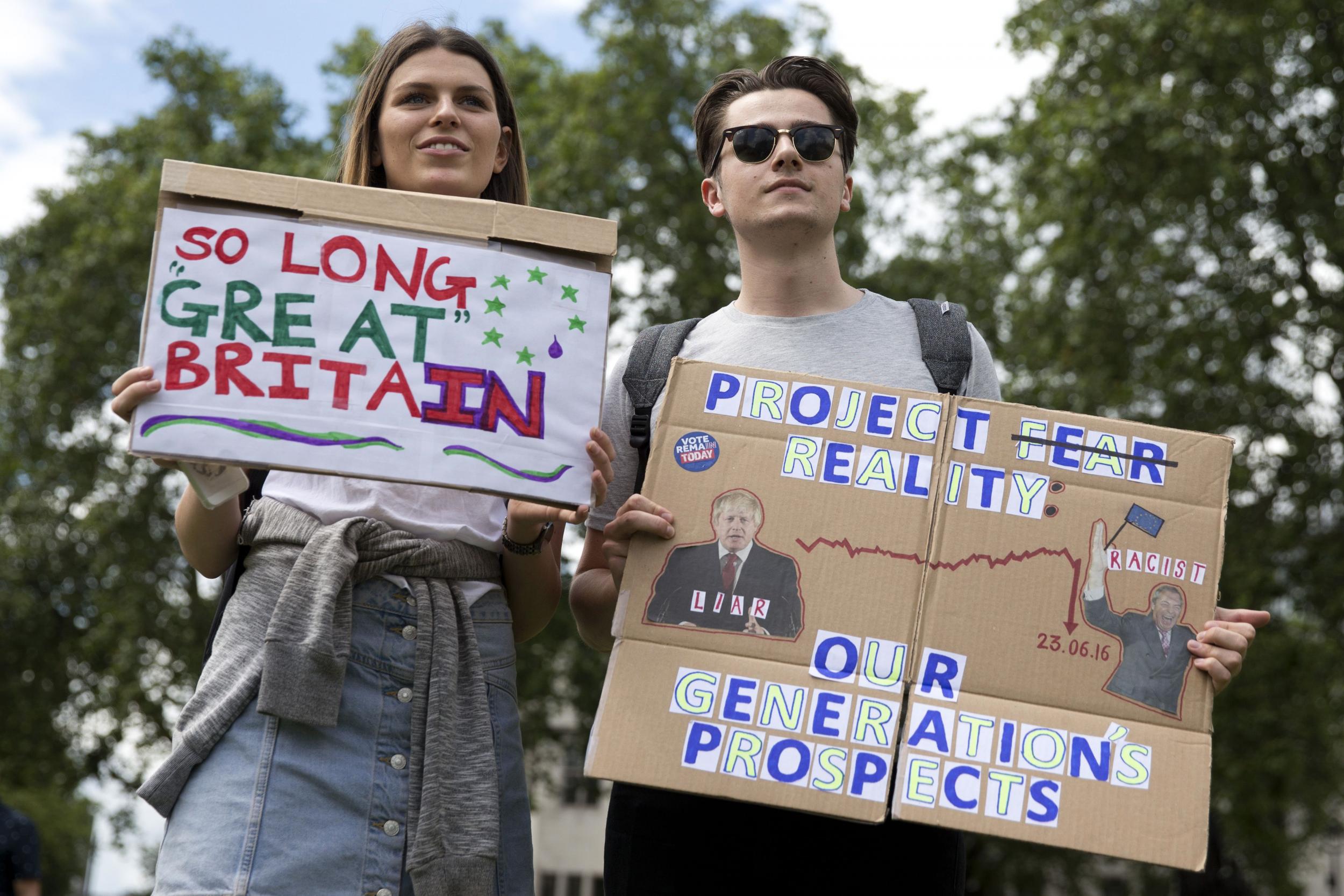Brexit: The imminent danger is that an entire generation now turns its back on politics
‘At this pivotal time in politics - the most radical era of change since the post-war period - our responsibility is to stay positive’

Young people and students should be proud of how we voted in the EU referendum. We proved we are an optimistic, outward-looking, open-minded, and inclusive generation - one that deserves the right to study, work, live, and love in 28 different countries.
Of course, though, we find it hard to be hopeful about the result. It is a tragedy the three-quarters of 18 to 24-year-olds who wanted to remain were ignored, outweighed by other marginalised groups after a misleading campaign of negativity, fear, and intolerance when truth disintegrated and divisions in our society deepened.
Yet, at this pivotal time in politics - the most radical era of change since the post-war period - our responsibility is to stay positive.
Anger or grief must not obscure our belief in a better world. The youth have made a powerful, progressive, and collective argument that Brexit will not necessarily suppress. Let’s take heart from our unity, not only with our friends, but with our former opponents.
We have far more in common with those who voted Leave than things that divide us. We, too, are economically disregarded. We, too, are fed up with the established order and the political class.
Despite our divergence over the reasons and solutions, we also recognise our political system is at breaking point. We also want to take back control of our country and our democracy.
On 23 June, Britain voted to rip up our failing constitution and start again. Surely now, that would be the best possible outcome.
First, we must accept Brexit. If real progressives plan to influence the future framework of our government, there can be no denial we are categorically out. To call for legal challenges - let alone a second referendum - would be to insult the intelligence of millions, condemn our democracy, and isolate ourselves from negotiations.
Next, we need to fight for pragmatism within the Labour Party. An early general election for selecting a specific Brexit manifesto looks inevitable and we need a mainstream, broad-minded politician who can heal the wounds. Boris Johnson, backed up by Michael Gove or Nigel Farage, would be a shambles, so it is up to Labour members to elect a successor to Jeremy Corbyn with a credible vision for one nation and a good grace that reaches beyond their core supporters.
In the election, young people have to mobilise and galvanise the centrist parties to ensure a unified future; rekindling their ties to the working classes, preventing a swing to Ukip, and offering Scotland an attractive form of home rule. For their part, the Government can start listening to students by promising to protect our educational and employment opportunities in Europe as a matter of priority.
The imminent danger is that a generation turns its back on politics, taking the referendum as proof our interests are permanently overlooked. Our voices must be amplified, especially those of 16 and 17-year-olds who are most affected, and government policy has to meet our needs during and following the Brexit negotiations. Then, and only then, could we strive to restore progressive values and social equality to the heart of a newly defined democracy.
In exposing the public thirst for greater sovereignty, Brexit has infinitely strengthened the case for constitutional reform. We have grounds to seize the substance behind the slogans and ensure that any government is serious about giving people back control.
How so? Shifting power from so-called unelected bureaucrats in Brussels to an unelected prime minister or unelected peers in the House of Lords? There is no way it can be justified. Nor should the makeup of a supreme House of Commons continue to depend on the one-third of voters who live in marginal constituencies.
An innovative package of changes to the political process, including wider consultation on policy issues, a proportional voting system, and an elected second chamber in our parliament, could both unite the country and feel genuinely refreshing for young people. The status quo is no longer acceptable for representing the diversity of opinion and opportunity that currently divides Britain. If we can salvage any legacy for this referendum, it would be recognising the need for cooperation, and for the young to exercise control.
Daniel Wittenberg, 18, is a languages student and freelance features and sports writer with an interest in youth politics
Subscribe to Independent Premium to bookmark this article
Want to bookmark your favourite articles and stories to read or reference later? Start your Independent Premium subscription today.

Join our commenting forum
Join thought-provoking conversations, follow other Independent readers and see their replies